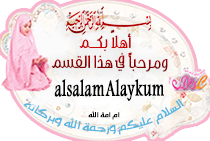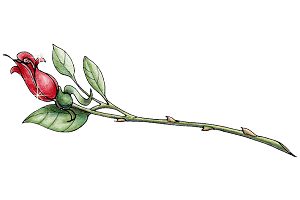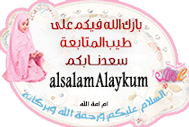#1
أم أمة الله
.::| مديرة عدلات |::.
بيانات العضوة
- رقم العضوية : 87979
- تاريخ التسجيل: 123Apr 2015
- الدولة : مصر
- المدينة : مصر
- الحالة الاجتماعية : متزوجة
- الوظيفة : ليسانس لغة عربية
- المشاركات: 21,568 [+]
- الأصدقاء : 195
- نقاط التقييم : 6850
 The obligatory parts and sunnahs of wudoo
The obligatory parts and sunnahs of wudoo


The obligatory parts and sunnahs of wudoo
What are the essential parts (arkaan, lit. “pillars”), obligatory (waajib) parts and sunnahs of wudoo’?
Published Date: 2025-11-04
Praise be to Allah
Firstly:
The essential parts (“pillars”) of wudoo’ are six:
1. Washing the face, of which the mouth and nose are part.
2. Washing the arms up to the elbows.
3. Wiping the head.
4. Washing the feet up to the ankles.
5. Washing these parts of the body in the proper order.
6. Doing these actions consecutively (that is, washing one after the other, with no lengthy lapse of time in between).
Allah, may He be exalted, says (interpretation of the meaning):
“O you who believe! When you intend to offer As-Salat (the prayer), wash your faces and your hands (forearms) up to the elbows, rub (by passing wet hands over) your heads, and (wash) your feet up to ankles”
[al-Maa’idah 5:6].
See: ar-Rawd al-Murbi‘ ma‘a Haashiyat Ibn Qaasim (1/181-188).
Shaykh Ibn ‘Uthaymeen (may Allah have mercy on him) said:
What is meant by the obligatory (fard) parts of wudoo’ here is the essential parts (pillars).
Thus we may understand that the scholars (may Allah have mercy on them) use different expressions, so they may describe the obligatory (fard) parts as essential parts (arkaan, lit. pillars) and vice versa. End quote from ash-Sharh al-Mumti‘ (1/183).
We have mentioned previously that fard is the same as waajib [both mean obligatory] according to the majority of scholars. See question no. 127742.
So the obligatory (waajib) parts of wudoo’ are its pillars or essential parts, which may also be described as fard. They are the actions without which wudoo’ cannot be valid.
With regard to saying Bismillaah before doing wudoo’, Imam Ahmad was of the view that it is obligatory.
However, the majority of scholars are of the view that it is one of the Sunnahs of wudoo’ and is not obligatory. This has been discussed previously, in fatwa no. 21241.
Secondly:
The sunnahs of wudoo’ are numerous. Shaykh Saalih al-Fawzaan (may Allah preserve him) said:
The sunnahs of wudoo’ are as follows:
1. Using siwaak, which is to be done when rinsing the mouth, so that by means of the siwak and rinsing the mouth, the mouth will be cleansed for worship and be prepared for recitation of Qur’an and conversing with Allah, may He be glorified and exalted.
2. Washing the hands three times when starting wudoo’, before washing the face, because of the hadiths which speak of that, and because the hands are the tools used to transport water to the other parts of the body, so washing them is prudent action before proceeding with wudoo’.
3. Starting by rinsing the mouth and nose before washing the face, because starting with them is mentioned in the hadiths; and one should do them thoroughly when not fasting.
What is meant by washing the mouth thoroughly is circulating water to all parts of the mouth, and when rinsing the nose it means taking up water to the deepest part of the nose.
4. In the case of a thick beard, ensuring that water reaches throughout; and making sure that water gets in between the fingers and toes.
5. Starting on the right in the case of the hands/arms and feet, before the left.
6. Washing more than once, up to three times, when washing the face, hands/arms and feet.
End quote from al-Mulakhkhas al-Fiqhi (1/44-45).
Another Sunnah is wiping the ears, according to the majority of scholars. Imam Ahmad was of the view that wiping them is obligatory. This has been discussed previously in fatwa no. 115246.
After doing wudoo’, it is mustahabb to recite the following supplication: Ashhadu an laa ilaaha ill-Allaah wahdahu laa shareeka lah, wa ashhadu anna Muhammadan ‘abduhu was rasooluhu. Allaahumm aj’alni min al-tawwaabeena waj’alni min al-mutatahhireena, subhaanaka Allaahumma wa bi hamdika, ashhadu an laa ilaaha ill anta, astaghfiruka wa atoobu ilayka (I bear witness that there is no god except Allah alone, with no partner or associate, and I bear witness that Muhammad is His slave and Messenger. O Allah, make me one of those who repent and make me one of those who purify themselves. Glory and praise be to You, O Allah, I bear witness that there is no god but You, I seek Your forgiveness and I repent to You).
For a complete description of wudoo’, please see fatwa no. 11497.
And Allah knows best
إظهار التوقيع
توقيع : أم أمة الله
التوقيع لا يظهر للزوار ..
- مشاركات أم أمة الله
- عدد المواضيـع :
- عدد الـــــــردود :
- المجمــــــــــوع : 21,568
- أم أمة الله
- مشاهدة ملفه الشخصي
- إرسال رسالة خاصة إلى أم أمة الله
#2
حياه الروح 5
عضوة مـآسية
 رد: The obligatory parts and sunnahs of wudoo
رد: The obligatory parts and sunnahs of wudoo
جزاكي الله خيرا
إظهار التوقيع
توقيع : حياه الروح 5
التوقيع لا يظهر للزوار ..
- مشاركات حياه الروح 5
- عدد المواضيـع :
- عدد الـــــــردود :
- المجمــــــــــوع : 85,489
- حياه الروح 5
- مشاهدة ملفه الشخصي
- إرسال رسالة خاصة إلى حياه الروح 5
الساعة الآن 07:36 AM
جميع المشاركات تمثل وجهة نظر كاتبها وليس بالضرورة وجهة نظر الموقع


